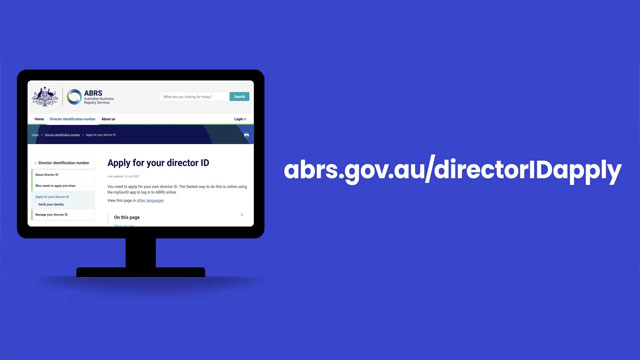Author: Yml Yml
How to remove a Property Caveat in NSW

A property caveat is usually lodged when someone has a legal interest or right to a property but does not have full ownership of the property. A caveat – a legal notice registered with the NSW Land Registry Services by an individual or an entity to protect their claim on a property – serves to inform anyone dealing with a property that there is a third-party interest associated with it.
Property caveats affect the ability to sell or transfer property and alert potential buyers and refinance lenders to a legal issue. This alert can make potential buyers and or lenders hesitant to proceed with a transaction.
A caveator must have sufficient connection to the property. That is, the party lodging the caveat needs to show they have a legal or equitable interest in the property on which they want a caveat. This is known as a caveatable interest and can arise under a range of circumstances such as through a contract to purchase a property, a security or a beneficiary’s interest under a trust.
Broadly, there are three main ways to remove a caveat:
- Through mutual agreement with the caveator,
- Through an application to lapse the caveat which goes undisputed, or
- Through a formal court application challenging the caveat order and the provision of evidence that an interest or claim no longer exists and thus a caveat is no longer necessary.
Generally, except where the caveator has agreed to remove their caveat, specialised legal counsel may be required, together with the relevant supporting evidence.
How can YML help?
Talk to YML Legal today to see how YML Group can assist you with removal of a property caveat. For more information, view our website and contact us on (02) 8383 4499 or by using our Contact Us page on our website.
What are your SMSF Tax-deductible Expenses?

Self-managed superannuation funds (SMSFs) are subject to clearly defined rules and regulations regarding tax-deductible expenses. While these rules are designed to ensure that SMSFs are operated for the sole purpose of providing retirement benefits to their members, SMSFs may claim tax deductions for certain expenses.
Generally, not all SMSF expenditure is tax-deductible and some capital expenses – cost of purchasing fund assets, for example – are tax-liable. Neither the cost of establishing a SMSF nor drawing up its trust deed may be claimed as tax deductions.
To be tax-deductible, expenses must be assumed in the endeavour of earning income for your SMSF, consistent with your SMSF’s investment strategy and permitted under its trust deed.
Here are some common expenses that you could claim as tax deductions for your SMSF, subject to Australian Taxation Office (ATO) approval:
-
Trustee expenses incurred for such events as trustee training, trustee meetings and SMSF-relevant seminars.
-
Administration fees for general operation of your SMSF, including collecting and processing member contributions.
-
Investment management fees such as those paid to financial advisers, investment managers, lenders, and stockbrokers for managing your SMSF’s investments.
-
Insurance premiums related directly to insuring your SMSF’s investments, and policy premiums paid on behalf of SMSF members for life or income protection insurance.
-
Accounting and auditing fees incurred for the preparation of your SMSF’s financial statements, annual returns, and audits.
-
Legal costs paid to legal counsel and legal representation related to the operation and compliance of your SMSF.
-
Bank fees and charges associated with your SMSF’s bank accounts.
-
Property management fees, if your SMSF owns property.
-
Rental property costs on SMSF-owned rental property.
-
Property repair and maintenance costs incurred on SMSF-owned property.
-
Interest on loans used to purchase SMSF-owned property.
-
Depreciation costs on investment assets, such as commercial property plant and equipment.
-
Compliance costs such as ATO lodgement fees and statutory fees and levies.
SMSF trustees are responsible for keeping accurate records of all expenses and checking that those expenses meet the strict eligibility criteria for tax deductions, as it is crucial to comply with Australia’s taxation rules and regulations.
The process for claiming expenses and deductions occurs in your SMSF’s annual return and trustees should ensure that all receipts and invoices are in the fund’s name and are retained for at least five (5) years after being submitted to the ATO. Penalties – fines – are metered out by the ATO for non-compliance which may not be paid from the SMSF itself.
As the laws regarding SMSFs change over time, stay up to date by seeking advice from a taxation professional who can also advise you on your specific SMSF and maximise tax benefits for your beneficiaries and you within the legal framework.
How can YML help?
Talk to our YML Super Solutions Team today to see how YML Group can assist you with your SMSF tax deductions. For more information, view our website and contact us on (02) 8383 4444 or by using our Contact Us page on our website.
Australian Taxation Agents require Clients to provide Photo ID

Identity breaches by nefarious people in our widening technological world is cause for the Tax Practitioners Board’s requirement for tax practitioners to verify their clients’ identities with a form of photo identification. This means greater protection for you of your personal and financial information and transactions.
To mitigate devastating financial consequences affecting Australians and the Australian economy, the Tax Practitioner Board asks tax agents to ensure that they adequately authenticate their individual clients’ identities. To achieve this, clients must provide evidence to their tax agent, including a form of identification that contains a photograph.
What you need to provide to your tax agent?
As an Individual seeking to engage a registered tax practitioner in your own right, you are required to provide your Full Name plus either your Residential Address or your Date of Birth. To do this, you will need to show original documentation as evidence:
An original or certified copy of a primary photographic identification document; or BOTH of the following:
An original or certified copy of a primary non-photographic identification document; and
An original or certified copy of a secondary identification document.
|
TYPE OF ID |
EXAMPLES |
|
Primary photographic ID |
|
|
Primary non-photographic ID |
|
|
Secondary ID |
|
YML Group – Your registered Tax Agent
At YML Group we value our clients and, as directed by the Tax Practitioners Board, we wish to protect both your identity and our practice. If you have not yet provided us with the required identification documents to assist us in verifying your identity with YML Group, please anticipate a subsequent email as a friendly reminder.
How can YML help?
Talk to our YML Chartered Accountants Team today to see how YML Group can assist you with your identification process. For more information, view our website and contact us on (02) 8383 4400 or by using our Contact Us page on our website.
Watch Out! You may be liable for a maximum criminal penalty of $16,500 if you have not acquired your Director ID Number.

Introduced in 2021, the Australian federal government’s Director Identification Number (DIN) scheme is designed to reduce illegal and unfair corporate activities, such as the creation of ‘dummy’ directors and company ‘phoenixing’.
The DIN is a unique 15-digit numerical identifier that remains with a director for a lifetime, including when a director changes companies.
Offences and penalties for late or non-acquisition of a DIN
ASIC enforces the legislative requirement of a DIN on directors. To avoid a substantial financial penalty for refusal or failure to obtain a DIN, you must reach out to the ABRS. Here are the four offences and their associated penalties that are upheld by ASIC under the Corporations Act 2001:
|
Offence |
Legislative Section |
Maximum Penalties for Individuals |
|
Failure to have a DIN when required to do so |
s1272C |
$16,500 (criminal) |
|
Failure to apply for a DIN when directed by the Registrar |
s1272D |
$16,500 (criminal) |
|
Applying for multiple DINs |
s1272G |
$33,000, |
|
Misrepresenting DIN |
s1272H |
$33,000, |
Am I a company director?
YML Group has the expertise to determine your company position status and to guide you through your DIN application.
There is no time to delay any further. If you are a company director, apply NOW for your DIN.
How can YML help?
Talk to our YML Chartered Accountants Team today to see how YML Group can assist you with acquiring a DIN. For more information, view our website and contact us on (02) 8383 4400 or by using our Contact Us page on our website.
What can you do if you do not agree with a Notice of Valuation of your land?

Australian property owners are required to pay land tax on the value of their land. Each year in NSW land value is assessed at 1 July and in line with the Valuation of Land Act 1916. This Act states that an assessor must assume the land is vacant and value it on its highest and best permitted use, based on current zoning and planning restrictions determined by local councils.
Whilst this Act guides the valuing of land, property owners have a right to object to the Notice of Valuation if they are concerned about the value being too high or too low, the area, dimensions or description are incorrect, or other factors have been omitted or are wrong. If you are a property owner, you may challenge the assessed land value through a formal objection process.
The process of objecting to a valuation recently determined for your property is done through the relevant state or territory government authority, which in NSW is the Valuer General. A formal objection will be reviewed by the authority. The authority might adjust the land value if sufficient evidence is found to support your challenge.
Steps to lodge an Objection
If you believe that a Notice of Valuation for your land contains errors or is unfair, you’ll need to follow these steps to make a formal objection:
Carefully review the information provided in your Notice of Valuation, making sure to clearly understand the criteria that led the valuer to arrive at the valuation – such as land location, size, zoning regulations, property characteristics, recent property sales, economic conditions, as well as the date on which the valuation was conducted.
Gather relevant evidence to support your challenge – such as comparative sales data for similar properties in your area (minimum of 3 property sales), documentation of any significant changes, including renovations, to your property that could affect its value, as well as any other aspects that could demonstrate why the valuation is incorrect on your Notice of Valuation.
Submit a formal objection with the NSW Valuer General or other state authority. You must say what you think the true land value is; provide all documentation and evidence supporting your land value assertion. Note, each objection may only apply to one property. You must lodge separate objections if you have multiple properties. There is no opportunity to submit additional evidence after lodging an objection, so be sure to include all supporting material at the time of lodgement.
Note the time limit to make an objection – NSW Valuer General has a 60-day deadline as advised on the front of your Notice of Valuation, OR 60 days from the issue date on your Land Tax Assessment.
Await the resolution of your case and respond to any requests for further information or clarification of your supporting material. At the end of the review, it might be decided to adjust the valuation, uphold the original valuation, or negotiate a settlement with you.
Seek legal assistance should you be dissatisfied with the result of a review and want to consider appealing a decision. Call YML Legal for professional advice about property assessment and valuation. We will also provide you with the most up-to-date information about the Notice of Valuation objection process.
How can YML help?
Talk to YML Legal today to see how YML Group can assist you with your objection to a Notice of Valuation. For more information, view our website and contact us on (02) 8383 4499 or by using our Contact Us page on our website.
A General Guide to Property Transfers and ATO Clearances

Transferring property in Australia involves legal and taxation considerations, including dealing with the Australian Taxation Office (ATO) for clearances and pertinent notifications. Property laws are complex, so it is important to understand the general process to transfer a property legally and in accordance with ATO conditions.
Contract of Sale
To begin transferring a property, a contract of sale between a vendor (seller) and a purchaser (buyer) must be signed. The contract of sale outlines the details of the property, the purchase price, the terms of sale, including any special conditions of sale, and the date of settlement.
Conveyancing – Pre-settlement
Conveyance is the legal process of transferring property from one owner to another and is conducted prior to settlement. Administrative tasks – such as preparing and exchanging legal documents, checking that a property’s title is clear of encumbrances, arranging a property inspection and investigating the taxation obligations on both the seller and the buyer – must be completed.
Stamp Duty
Stamp duty is a tax imposed by state governments on property transfers. The amount is determined by a property’s location and value. Stamp duty must be paid prior to settlement.
ATO Clearance Certificate
The ATO plays a role in property transfers to ensure that relevant taxes are paid by both parties. A clearance certificate is provided by the ATO which confirms that a seller is an Australian resident – and not a foreign resident for taxation purposes – and is therefore not subject to a withholding tax obligation.
A seller of a property valued at $750,000 or more is required to supply a valid clearance certificate to a buyer at or before settlement to avoid a buyer withholding an amount of the sale price (currently 12.5%) to meet a Foreign Resident Capital Gains Withholding (FRCGW) tax obligation.
Once a clearance certificate has been issued, it is generally valid for 12 months.
Capital Gains Tax (CGT)
Any profit made from a property sale may incur a CGT liability. Capital improvements, such as renovations, and other factors must be recorded and the ATO will advise if CGT is payable by an Australian resident seller.
Settlement
On the date of settlement stipulated in a Contract of Sale, the final payment is made, and legal ownership of a property is transferred from one owner to another. Typically, legal representatives or conveyancers assist with the final payment and document exchange.
Transfer of Title – Post-settlement
After settlement a property transfer must be registered with the relevant state authority and the property title via a ‘Transfer of Title’ document is updated to reflect the new owner.
Seek Financial and Legal Advice
Due diligence in the transfer of property will alleviate the burden of what can be a complex undertaking for both sellers and buyers. It would be prudent to ask certified and experienced financial and legal professionals for guidance to ensure a smooth selling and buying process for all parties.
How can YML help?
Talk to our YML Chartered Accountants Team today to see how YML Group can assist you with your property transfers. For more information, view our website and contact us on (02) 8383 4400 or by using our Contact Us page on our website.
NEW Register of Foreign Ownership – Do you need to notify it?

Australia’s Foreign Investment Review Board (FIRB) is a government body that manages foreign investments and purchases of Australian land and securities. When a foreign investor is granted permission by FIRB to buy land, property and securities in Australia, the foreign investor is obligated to register any changes to ownership to the new Register of Foreign Ownership of Australian Assets, which falls under the Foreign Acquisitions and Takeovers Act 1975 (Cth) (FATA).
The new Register is not publicly accessible.
What changed from 1 July 2023?
From 1 July 2023 the new Register under the FATA is effective and foreign investors who acquire or dispose of an entity or their interest changes by at least 5% in an entity, then they must notify the new Register within 30 days of when the holder of an interest is aware, or, as some changes are passive, ought reasonably to be aware, of a change.
Is FIRB approval still necessary?
Yes, foreign persons wanting to invest in Australian interests must apply for and be granted FIRB approval prior to any purchase of an eligible entity.
The new Register is an additional regime for foreign investors and is part of the FATA, ensuring that foreign investment is regulated in accordance with Australia’s national interest and to the benefit of Australia’s economy.
Is there a cost for notifying the new Register?
No, there is no cost for notifications to the new Register. There remains a cost, indexed annually, for applying for and seeking FIRB approval which must be received prior to an acquisition.
For what interests must notification be given?
Foreign investors must notify the new Register of the following actions occurring from 1 July 2023, including but not limited to:
- an interest in Australian land, excluding equitable interests of less than a 5-year lease or licence in agricultural land
- a legal interest in a share or unit of an Australian land corporation/trust or in the trustee of an Australian land trust
- an interest in an exploration tenement
- registrable water interests
- an acquisition of shares or assets of an Australian business or entity, notifiable under the FATA
Generally, acquisition and/or disposal of, or changes to, interests prior to 1 July 2023 do not require notice to be given to the new Register.
However, if you become a foreign person and are a holder of interests, regardless of when the acquisition of your interests occurred, notice must be given to the new Register.
The FATA obliges foreign investors to provide notice of changes as they occur over the period of ownership. If the interest changes in nature OR the percentage interest changes OR land or securities are sold or a land lease ceases OR if you cease to be a foreign person, then, among other changes not herein mentioned, these must be reported to the new Register.
Review and Update Accounting Systems
Foreign persons are required to keep records of register notices for five (5) years and failure to do so may constitute an offence, so it would behove foreign persons to undertake a review of their internal accounting systems and processes to ensure prudent record-keeping and legal compliance with the FATA’s new Register.
Your existing accounting procedures might now need to be updated to monitor Australian investment activity more closely and to fully encompass the broad range of notification requirements of the new Register.
How to notify the new Register
Foreign investors must use the Australian Taxation Office (ATO) portal by:
- Setting up a myGovID account;
- Verifying their identity; and
- Registering as a foreign investor
You may choose to appoint YML Legal to lodge register notices on your behalf. YML Legal has the professional expertise to guide you through the new register’s obligations for foreign investors.
How can YML help?
Talk to YML Legal today to see how YML Group can assist you with your foreign investment notifications. For more information, view our website and contact us on (02) 8383 4499 or by using our Contact Us page on our website.
Do you want to make Interest-Only Repayments?

If you’re an investor with an interest-only investment loan that is going to revert soon to principal + interest repayments, OR you have a high principal + interest investment loan, then call YML Finance on (02) 8383 4466 and talk to us about our new product.
We have a new product that could potentially help you to go back to making lower interest-only repayments on your investment loan.
Reach out to us NOW and learn more about how we can help you by calling us on (02) 8383 4466 and requesting a callback or making an appointment with the YML Finance Team.
How can YML help?
Talk to our YML Finance Team today to see how YML Group can assist you with investment loan repayment options. For more for more information, view our website and contact us on (02) 8383 4466 or by using our Contact Us page on our website.
YML Chartered Accountants Digital Transformation

To align with the digital world and embrace technological advancements, you will notice some changes in documentation such as tax return and financial statement format, starting from 1st Jul 2023, some of our client's YML service invoices will be sent via Xero, a trusted and secure online accounting software. We want to assure you that this change is entirely legitimate and not a fraudulent activity. You can expect to receive your invoices directly from Xero on our behalf.
If you have any questions or concerns regarding the new way, we send your invoice or any other matter, please feel free to reach out to our team. We value your feedback and are always here to assist you.
How can YML help?
Talk to our YML Chartered Accountants Team today to see how YML Group can assist you. For more information, view our website and contact us on (02) 8383 4400 or by using our Contact Us page on our website.
Superannuation Guarantee Rate – Change from 1 July 2023

Australian employers must make mandatory contributions, paid quarterly, to their employees’ nominated superannuation funds. The contribution is calculated as a percentage of an employee’s ordinary-time earnings and is known as the Superannuation Guarantee (SG).
On 1 July 2023, this percentage rate went up by 0.5%. The Superannuation Guarantee percentage rate – from 1 July 2023 to 30 June 2024 – is now 11%.
Employers are legally obligated to make SG contributions on behalf of their eligible employees. Doing so ensures that employees are not reliant on their own contributions to save and invest for their future retirement. Therefore, employers must keep informed about new compliance matters as percentage rates change each year.
Employer Compliance
The SG contribution scheme requires employers to meet their legal obligations and responsibilities to employees by making accurate and timely contributions within the relevant regulatory framework.
The Australian Taxation Office (ATO) offers a checklist for businesses to help them remain compliant. Here are some points for you to remember:
Update Software: Ensure that your Single Touch Payroll (STP) software is up to date with the recent SG percentage rate change from 10.5% to 11%.
Identify Eligible Employees: Reassess your eligible employees, including any contractors and employees sent overseas on behalf of the business.
Recalculate Ordinary-Time Earnings: Evaluate what earnings qualify as OTE and make any adjustments necessary for the SG calculation in this new financial year.
Check SG Payment Dates: The ATO sets out SG payment dates for each quarter’s required payments by employers to their employees’ nominated superannuation funds. The dates follow the end of each business quarter. This financial year’s contributions are due by:
- 28 October 2023,
- 28 January 2024,
- 28 April 2024, and
- 28 July 2024.
Failure to pay the SG on time can result in penalties imposed by the Australian Taxation Office (ATO). These penalties may include interest charges, administration fees, and even legal action.
Businesses may incur increased tax liabilities for late payment of SG contributions. This is because SG contributions are tax-deductible for Australian businesses, except when an SG contribution is paid late. In the case that an employer does not pay SG contributions on time, the ATO will automatically disallow any tax-deductibility of those SG amounts.
YML Group offers its specialist guidance and advice to help employers to understand the specific implications and benefits of the SG contribution scheme for their businesses and their employees.
How can YML help?
Talk to our YML Business Services Team today to see how YML Group can assist you with your superannuation guarantee obligations. For more for more information, view our website and contact us on (02) 8383 4455 or by using our Contact Us page on our website.


